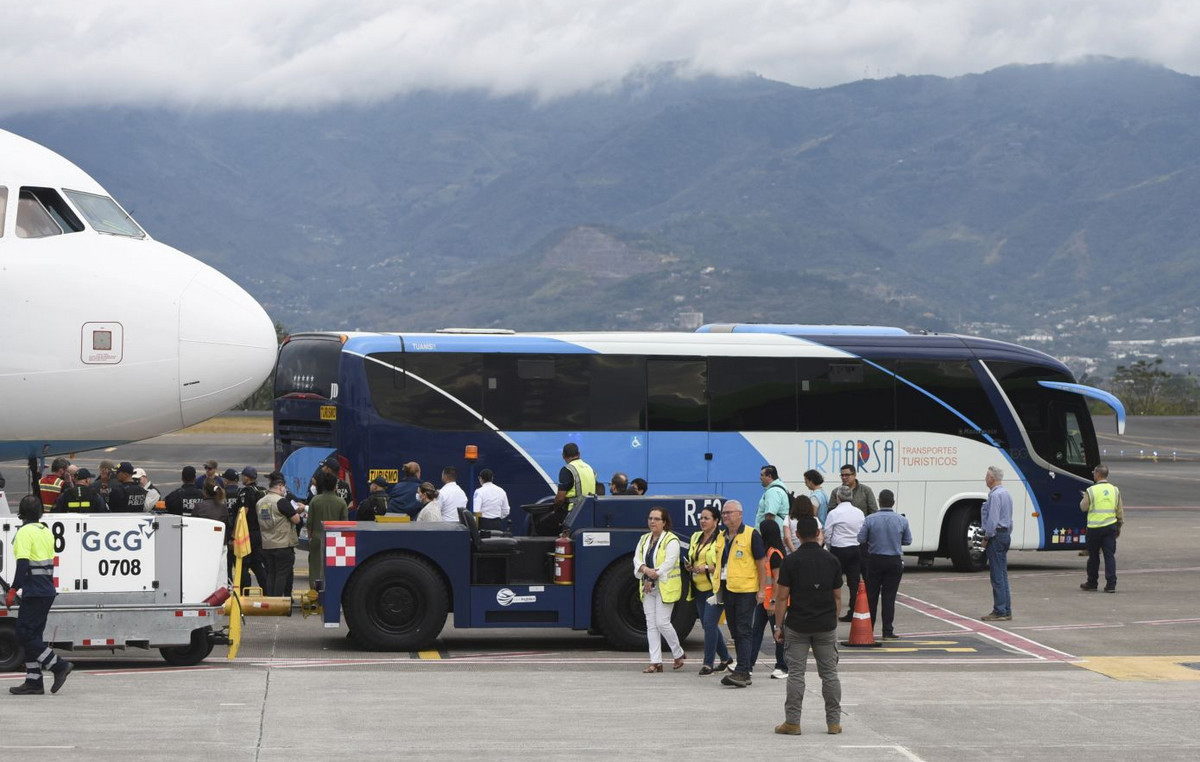China needs to convince the rest of the world that it is not an “agent of instability” and that it will act peacefully in the Taiwan Strait, said US ambassador to the Asian country, Nicholas Burns. The statement came in his first TV interview since taking office in Beijing six months ago.
He spoke candidly about Beijing’s reaction to US House Speaker Nancy Pelosi’s visit to Taiwan earlier this month, to which China responded by carrying out extensive military exercises around the island and suspending key diplomatic communications with the United States. .
“We do not believe there should be a crisis in US-China relations with the Speaker of the House of Representatives’ peaceful visit to Taiwan. It was a manufactured crisis by the Beijing government, an overreaction,” Burns told CNN this Friday (19) directly from the American Embassy.
Now, “it is up to the government here in Beijing to convince the rest of the world that it will act peacefully in the future. I think there is a lot of concern around the world that China has become an agent of instability in the Taiwan Strait and that is in nobody’s interest,” he added.
Burns, a career diplomat and former US ambassador to the North Atlantic Treaty Organization (NATO), arrived in the Asian country in March to assume the United States’ most important diplomatic post. Ties between the countries present tensions on a range of issues, such as China’s enforcement of human rights, trade practices and military expansion in the South China Sea.
Tighter Covid-19 restrictions have also reduced diplomatic travel in and out of Chinese territory, putting Burns even more squarely on the front lines of the increasingly conflicted relationship between the world’s two largest economies.
This became clear on the night of August 2, when the diplomat was summoned to a meeting with Chinese Vice Foreign Minister Xie Feng, during what would have been the exact moment when the plane carrying Nancy Pelosi and her delegation of Congress landed in Taipei, the capital of Taiwan.
“We had a very lively meeting, I would say quite contentious,” Burns said, describing in detail for the first time this discussion, which was confirmed by the governments of both nations at the time.
“I defended the speaker. I defended your right to travel to Taiwan. I have defended the peace and stability we had in the Taiwan Strait for nearly six decades,” the ambassador explained, adding that he challenged Xie to ensure that the Chinese government acted in a way that “promotes peace and stability.”
Instead, Burns noted, Beijing responded in a way that “intimidated and coerced Taiwanese officials” and “conducted a global campaign” blaming the US for what it sees as undermining stability in the Taiwan Strait, including firing missiles over Taiwan. island.
“We were very, very clear about sticking to our policy. The question is: will a government act aggressively and violently to disrupt the peace? That should worry everyone,” she noted.
diplomatic consequences
The US advocates a “One China” policy, but has never accepted the Communist Party’s claim to sovereignty over Taiwan. Washington maintains “strategic ambiguity” on the question of coming to the defense of the self-governing island in the event of a Chinese attack.
The Communist Party has long vowed to “reunify” the island — which it never controlled — with the Chinese mainland. If necessary, by force.
China condemned Pelosi’s visit as a violation of its “sovereignty and territorial integrity”, with Chinese Ambassador to the US Qin Gang earlier this month saying the United States must “take responsibility” for the situation it has created.
Beijing’s diplomatic retaliation included canceling future phone calls and meetings between defense leaders and suspending bilateral climate talks between the two countries – the world’s two biggest carbon emitters.

This whole situation came after a phone call between Presidents Xi Jinping and Joe Biden in late July, in which both sides said their teams would keep in touch about cooperation, including, according to the White House, a potential face-to-face meeting.
The two have not met in person so far since Biden assumed the presidency, while Xi Jinping has conducted most of his pandemic-era diplomacy through video calls.
Burns pointed out that the diplomatic measures Beijing took after Pelosi’s visit could have global effects, adding that the suspension of environmental talks would affect the Global South and countries most susceptible to climate change.
“We strongly urge (China) to return to the negotiating table with the United States on climate,” Burns said.
“We should have regular conversations at a senior level about the issues that separate us, because that is in the best interests of both countries and certainly in the best interests of the world,” he said. He pointed out that while there was official contact through the embassies, there was no “substitute” for high-level cabinet talks.
When asked whether the lessons the Chinese government may have learned from watching Russia’s invasion of Ukraine could be applied to Taiwan, Burns said the US is “watching China very carefully as it conducts its relationship with Russia.”
China refused to condemn the invasion or refer to classifying it that way.
“We have been very clear that there will be consequences if there is systemic support from the Chinese government for Russia’s brutal war in Ukraine,” he warned, adding that they did not see such support.
building connections
Nicholas Burns has worked with other sensitive situations in the past. He was a leader in negotiations on thorny issues such as Iran’s nuclear program, military assistance to Israel and the US-India Civil Nuclear Agreement. This time, he says the US mission in China is trying “the best to connect” with its counterparts.
Making connections with the Chinese public was another “great ambition”, said the ambassador, who has traveled to the Asian country several times since 1988, including a visit for the delivery of Hong Kong from the UK to China in 1997.
But Burns noted that his work to connect with the Chinese people, both in person and through the embassy’s social media channels, was also challenged by China’s Covid-19 control measures. Another difficulty was the regular censorship of the American embassy’s posts on Chinese social networks.
“We feel very strongly that it is our need to go out and visit people and conduct diplomacy with the Chinese people as well as the Chinese government. Of course, we want to see the day when the ‘Covid-Zero’ policy ends, but this is not our decision, it’s the Chinese government’s”, observed the ambassador, who spent more than 30 days in quarantine imposed by the government during your period there.
Censorship by Chinese authorities caused embassy posts, including those about US policy on China, Hong Kong, NATO and support for LGBTQIA+ Pride, to be suppressed, Burns said.
At the same time, he said he was “disturbed” by the Chinese government’s narratives blaming the United States and NATO for the war in Ukraine rather than Russia, which launched the invasion – an issue he said he raised with his Chinese counterparts.
Despite these challenges and the US pledge to “compete responsibly” with China, Burns urged the Asian nation to meet the US “halfway” both to discuss their differences and the issues on which they can work together for good. bigger: “You have to show up at the negotiating table to cooperate.”
Source: CNN Brasil
I’m James Harper, a highly experienced and accomplished news writer for World Stock Market. I have been writing in the Politics section of the website for over five years, providing readers with up-to-date and insightful information about current events in politics. My work is widely read and respected by many industry professionals as well as laymen.







